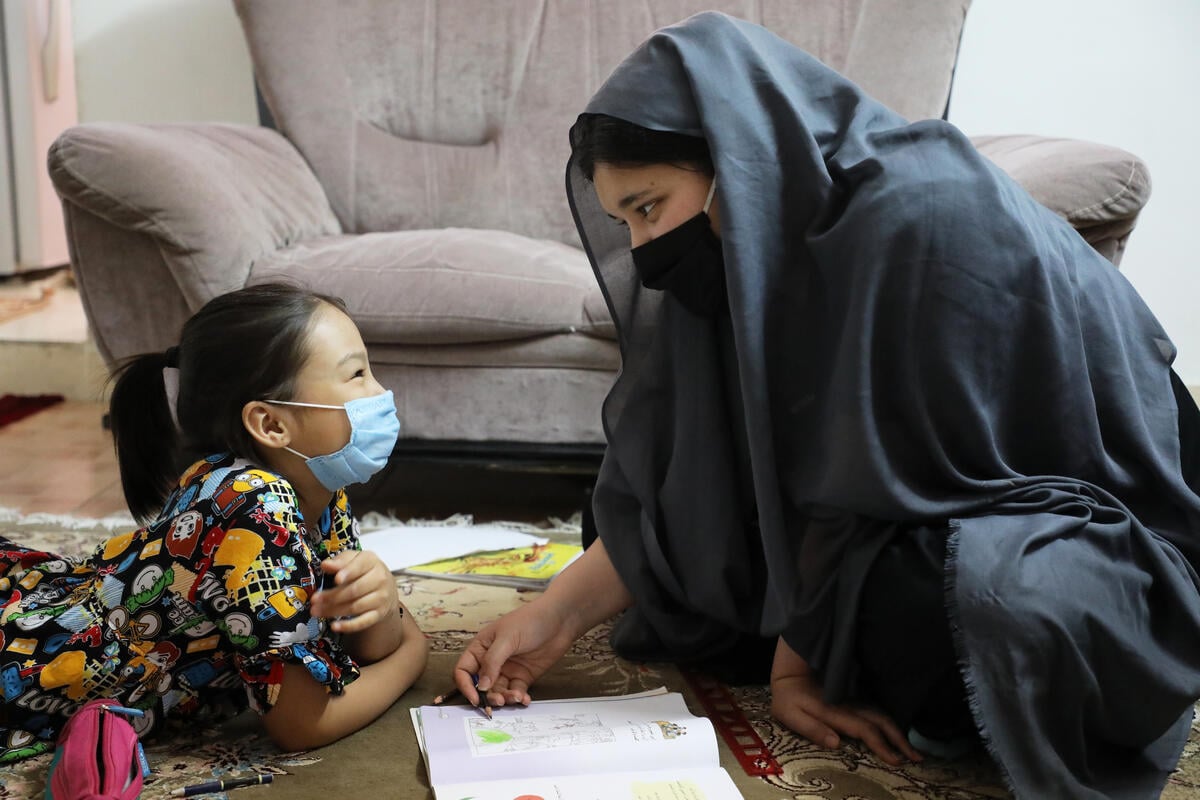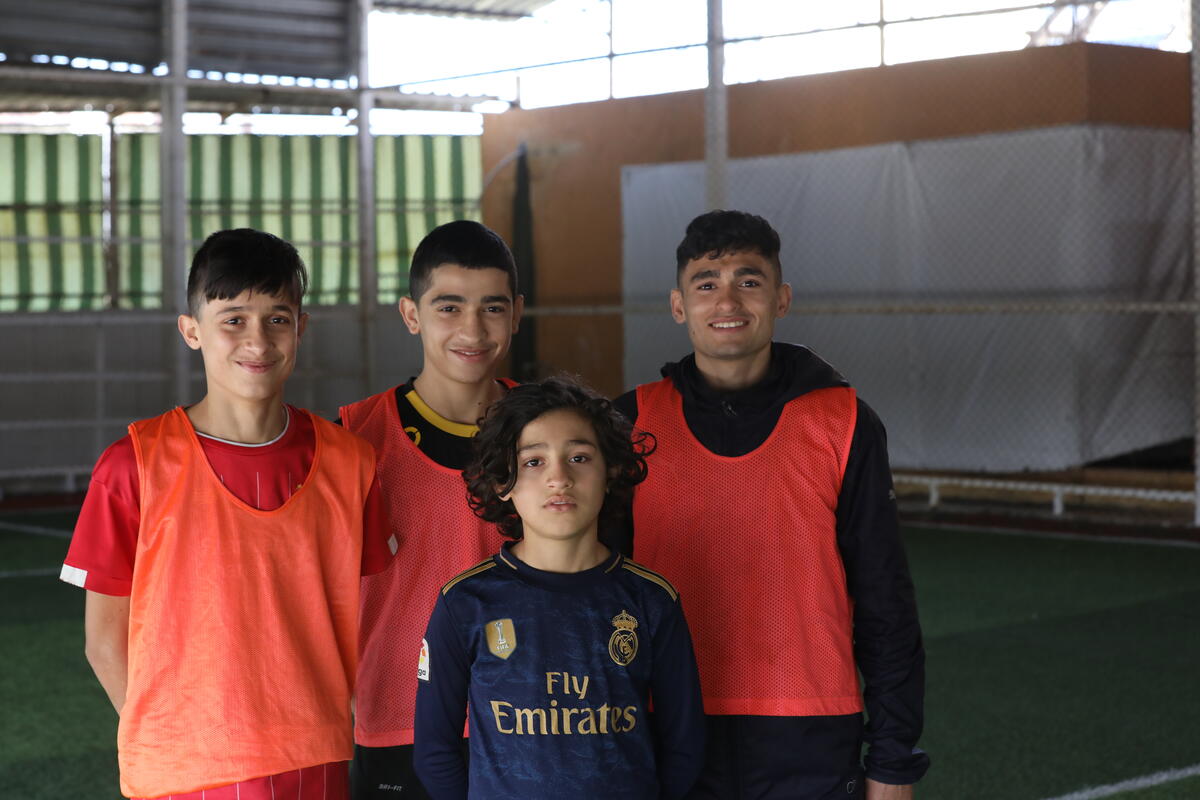Putting a human face to HIV/AIDS
Putting a human face to HIV/AIDS

KINSHASA, Democratic Republic of the Congo, Dec 3 (UNHCR) - Seeing is believing for many refugees at Kilueka camp in south-western Democratic Republic of the Congo (DRC). So on World AIDS Day, the UN refugee agency sought to open their eyes and minds by putting a human face to the disease.
On Monday, two Congolese nationals from the DRC capital, Kinshasa, volunteered to talk about their condition to the Angolan refugees in Kilueka camp. The sensitisation session was initiated by UNHCR with the help of AIDS Forum and the Network of Persons Living with HIV/AIDS.
First to speak was Justine Kiyumba, a 35-year-old widow who lost her husband to AIDS and is herself HIV-positive. Since her husband's death in 2000, she has committed herself to fighting the disease by informing others and encouraging communities to be supportive and caring towards those infected by HIV.
"I look well and my message to the refugees is that it is difficult to identify someone who is infected unless there is an HIV testing," said Kiyumba. "That is why I encourage everyone to accept voluntary testing."
She was sharing her experience publicly for the third time. "It is not easy, but I have to because I am committed to the fight against AIDS," she said. "I have to tell those who are ignorant about HIV that AIDS does exist and that they must change their behaviour."
The second speaker, 60-year-old Aime Mambumpaka, heads an AIDS support organisation called People Affected by HIV/AIDS Organisation (PAHO). He has been living with HIV for the past 10 years and is just as determined to sensitise people to AIDS.
"You have those who are HIV-negative, those who are HIV-positive and those who are HIV-ignorant," he said, stressing the need to educate those who are unaware of AIDS. "I want to incite people to go through HIV testing and I also want to tell those who are already infected that they need to free their minds by being positive."
Sharing his own experience, he repeatedly emphasised that he is leading a normal life because he has freed himself from shame, which has helped him psychologically. He added, "I am an employed accountant in a private business and my boss is very supportive when I have to take off from the job to go and educate others about AIDS."
Dr. Dieudonne T.S. Yiweza, UNHCR's Regional HIV/AIDS Coordinator for Central Africa, explained his decision to organise the session, "We thought that by having infected persons from outside visit the camp, sceptical refugees could realise that AIDS does exist, while at the same time we protect infected refugees from stigmatisation."
He added, "There is a strong potential for stigmatisation of the HIV victims in the camps. Wherever we have gone to sensitise, some refugees tell us to show them who is infected in the camp so that they can avoid contamination."
Confidentiality is key to encouraging more refugees to volunteer for testing, so UNHCR has adopted strict confidentiality between those who are tested positive and the medical staff.
In most camps in the area, the agency has set up free voluntary testing centres where refugees trickle in at the rate of seven people per month. "Women are the bravest to come out and test for HIV," said Dr. Yiweza. "Going through an HIV detection test is a big decision that refugees have to make, so usually they only come after several sensitisation sessions."
UNHCR also promotes voluntary testing for pregnant women in all refugee camps. Pregnant refugees who test positive can go to government local hospitals in order to get Nevirapine, a drug used at the time of delivery to prevent mother-to-child transmission of the HIV virus. One 38-year-old Congo-Brazzaville refugee and mother of two received a Nevirapine treatment in August. She is now back in Kimanza camp with her baby, who is doing fine, while she is continuing her tuberculosis treatment.
Still, awareness and prevention remain the best cure. UNHCR's field staff have noted that Angolan refugees return home with more awareness of HIV/AIDS because of the intensive education activities in camps in their host countries.
"We hope that because of this heightened awareness, the refugees will contribute to HIV/AIDS education in Angola itself upon their return to their home communities," said Laurie Bruns, UNHCR's Regional HIV/AIDS Coordinator in South Africa.









